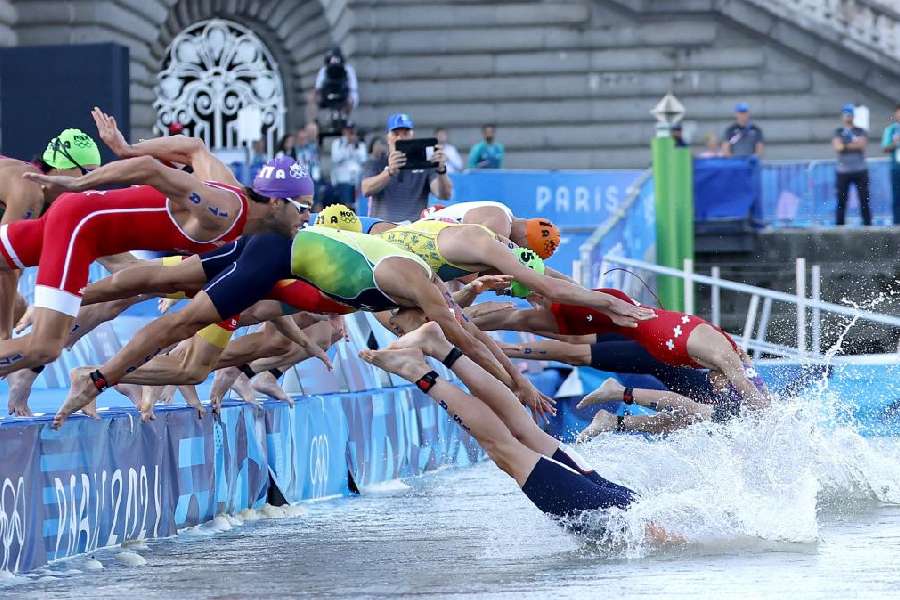Triathletes fresh from their second swim in the Seine generally shrugged off the risk of waste in the river making them sick, but highlighted the stress they were put through as the levels of bacteria in the waterway caused repeated disruption.
French authorities have spent €1.4 billion ($1.53 billion) on upgrading the capital’s sewage systems, promising the river will be clean enough for residents to swim in by next summer, though that will come too late for the athletes swallowing mouthfuls of it during their Olympic exertions.
The mixed relay went ahead as scheduled on Monday after organisers gave the all-clear on Sunday evening, acknowledging athletes’ demands for more certainty after the men’s individual race was postponed at the last minute because bacteria levels in the river were too high.
“I think they could have invested more into having clean water. It seems like they were just hoping for the best and knew the athletes are going to do it because it’s the Olympics,” said Morgan Pearson, part of the US team that won silver in the relay.
Several of the athletes said the uncertainty over the schedule and the last-minute postponement of the men’s race impacted their focus and their ability to perform.
“It’s tough to handle and you probably lose a night of sleep and therefore it influences a lot in your individual performance,” said Germany’s Tim Hellwig after his team won gold in the relay.
Organisers said they tried to mitigate the stress factor for the athletes by confirming
the mixed relay on Sunday, rather than on the morning of the event.
Paris 2024 spokesperson Anne Descamps confirmed so and added that the results of Monday’s water quality tests would be shared with the teams and athletes “when they become available”.
But Georgia Taylor-Brown, who helped Britain to a very tight bronze finish just behind the US, said she would have liked organisers to set aside an alternate venue for the sport.











